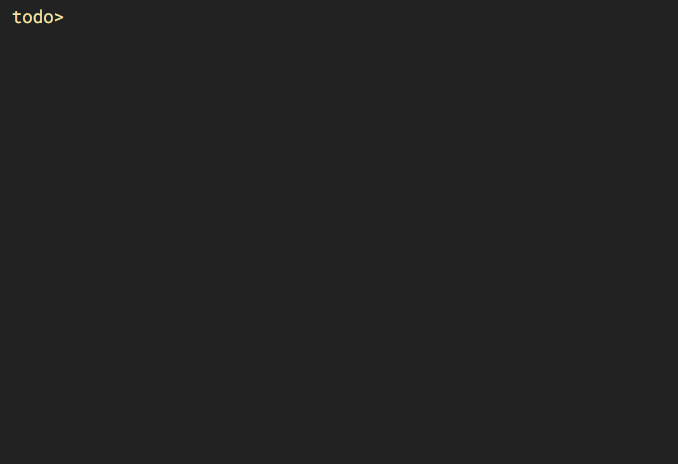todo list manager on the command-line inspired by todo.txt using the jsonl format
Usage: todo <command> <arguments>
Commands:
* add <text> add new task
* start <tasknumber> [text] mark task as started, with optional note
* done <tasknumber> [text] mark task as completed, with optional note
* block <tasknumber> [text] mark task as blocked, with optional note
* wait <tasknumber> [text] mark task as waiting, with optional note
* reset <tasknumber> [text] reset task to new state, with optional note
* prio <tasknumber> [text] toggle high priority flag, with optional note
* due <tasknumber> [date] set/unset due date (in YYYY-MM-DD format)
* append <tasknumber> <text> append text to task title
* rename <tasknumber> <text> rename task
* del <tasknumber> delete task
* note <tasknumber> <text> add note to task
* delnote <tasknumber> [number] delete a specific or all notes from task
* list <regex> [regex...] list tasks (only active tasks by default)
* show <tasknumber> show all task details
* repl enter read-eval-print loop mode
* cleanup <regex> [regex...] cleanup completed tasks by regex
* help this help screen
With list command the following pre-defined queries can be also used:
:active, :done, :blocked, :waiting, :started, :new, :all, :priority,
:note, :today, :tomorrow, :next7days, :overdue, :due, :recent
Due dates can be also added via tags in task title: "due:YYYY-MM-DD"
In addition to formatted dates, you can use date synonyms:
"due:today", "due:tomorrow", and day names e.g. "due:monday" or "due:tue"
Legend: new [ ], done [x], started [>], blocked [!], waiting [@], priority *
todo.jsonl file stores the todo data which is saved into the $HOME folder of the current user.
How to install
gem install todo-jsonl
Requirements
Ruby 2.5 or newer, or JRuby
Most of the console applications support ANSI/VT100 escape sequences by default, however you might need to enable that in order to have proper colorized output.
Demo
todo JavaScript REPL using browser local storage
Screencast:
Other versions
- todo for Node.js compiled with Opal
- todo for web using browser local storage, created with Opal and Vanilla Terminal
- todo for Deno (experimental) compiled with Opal
